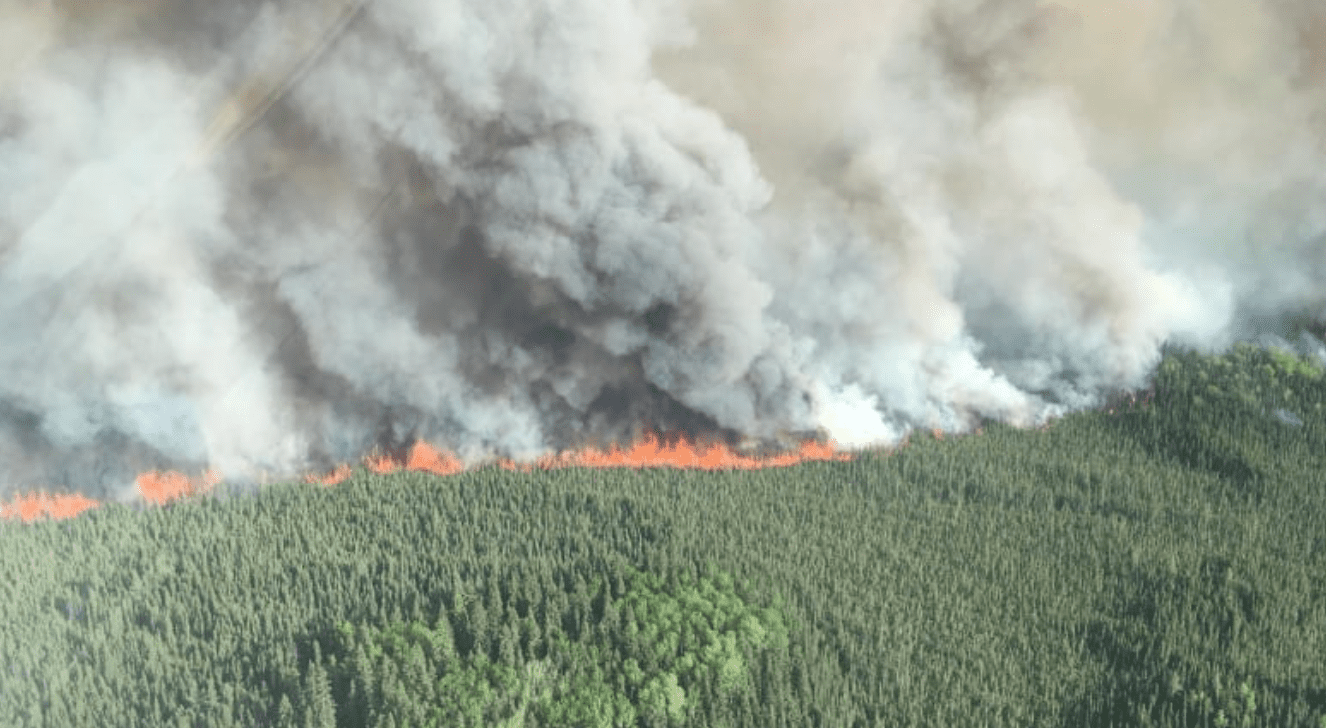Irony can be a capricious trickster.
In politics it hands opponents pointy sticks to poke you with.
Just ask Premier Jason Kenney. May 30 was supposed to be a hot sunny day in Edmonton — a perfect backdrop to tout the Alberta advantage by announcing the official repeal of the provincial carbon tax at a city gas station.
And then the wind swept in enough smoke from northern wildfires to turn the skies a sickly brown colour, oddly reminiscent of Blade Runner 2049.
The UCP cancelled the planned outdoor press conference/photo op. Headlines naturally ensued, all using the same theme as this one from The Star Edmonton: "Kenney cancels carbon tax repeal celebration due to ominous wildfire smoke."
Naturally Twitter lit up with the optics of the situation. Alberta is suffering through an unusually early wildfire season, resulting in evacuations in northwest Alberta, and abysmal air pollution metrics around the province.
Environmentalists contend this third year of severe wildfires in the province, the result of three years of hot, dry springs, are a result of climate change, the very thing that the previous NDP government cited as the reason to impose the carbon tax in the first place.
Kenney argues that carbon tax isn't the right measure to actually curtail carbon pollution. Rather than altering emission-heavy behaviours, the levy just hurts Albertans going about their everyday lives, he contends. But he chose to make that contention in a somewhat off the cuff connection between the tax and fires.
"They've had a carbon tax in British Columbia for 10 years. It hasn't made a difference to the pattern of forest fires there … or in Alberta. And we've always had forest fires. We always will," Kenney told a Calgary audience.
He then went on to link the fires to the fact we have "old boreal forests".
"All of the forestry experts will tell you that these regions of Alberta have been overdue for a major forest fire and our forests have been growing older."
This ominously sounds like he might be yearning to turn chainsaws loose to cut down old growth forests in the province.
The repeal of the carbon tax was a major election platform promise from the UCP. They adamantly disagreed with the NDP policy which was backstopped with studies that carbon levies are effective tools to reduce carbon emissions.
This week gasoline prices in Edmonton slipped down to the $1.05 per litre range in the wake of the carbon tax coming off. Promise kept, crows the UCP.
But simple as a tax repeal sounds, it's not going to be all that easy for the new government. To maintain even a modicum of credibility in today's smoky old world, the UCP will need to produce a more detailed range of policies than have been unveiled to date. So far they are maintaining a tax on heavy industrial emitters, favoured by Tories in the pre-NDP era, and vaguely relying on technological change to turn the carbon tide.
The repeal is producing a few other knotty problems for the government.
The NDP weren't particularly good at communicating what they actually used the carbon tax revenue for. Apparently a portion of the tax was going to provide a cap on the consumer price of electricity. The UCP says it will keep the 6.8 cents/kWh cap in place, but the cost of doing that will have to come out of the general public purse.
And then there's the nasty old federal government to contend with.
Like residents of other provinces without a carbon tax, Albertans will have to ante up for a federal carbon tax, vows Environment Minister Catherine McKenna.
"We know we're feeling the impacts of climate change. In Alberta, you have forest fires this year that have started earlier than before, major concerns about the impacts of these fires this year," she said.
"We're going to work as quickly as possible to make sure it's no longer free to pollute."
There's nothing simple about the causes of wild fires. Glib linkage of the current fires and climate change, while likely true in the big trend sense, feels a bit like making political hay out of Albertans' misery.
But there's also nothing simple about the puzzle of how to reduce carbon emissions. Failing to address the issue is leaving Kenney and Alberta open to the slings and arrows of opponents and pundits.
Photo Credit: CBC News






